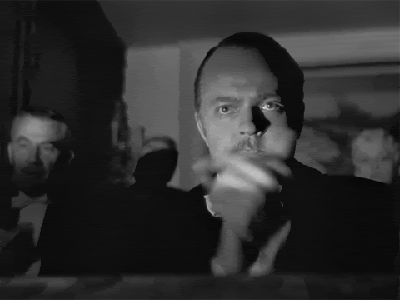Written by: Guillermo Del Toro and Chuck Hogan
Published: 2009
Synopsis: A Boeing 777 arrives at JFK and is on its way across the tarmac, when it suddenly stops dead. All window shades are pulled down. All lights are out. All communication channels have gone quiet. Crews on the ground are lost for answers, but an alert goes out to the CDC. Dr. Ephraim "Eph" Goodweather, head of their Canary project, a rapid-response team that investigates biological threats, gets the call and boards the plane. What he finds makes his blood run cold.
In a pawnshop in Spanish Harlem, a former professor and survivor of the Holocaust named Abraham Setrakian knows something is happening. And he knows the time has come, that a war is brewing.
So begins a battle of mammoth proportions as the vampiric virus that has infected New York begins to spill out into the streets. Eph, who is joined by Setrakian and a motley crew of fighters, must now find a way to stop the contagion and save his city - a city that includes his wife and son - before it is too late.
______________________________________________________________________________________________________
“for in the absence of God he had found Man. Man killing man, man helping man, both of them anonymous: the scourge and the blessing.”
After finishing NOS4R2 on our US/Canada trip Tom and I decided to give Guillermo Del Toro's vampire book a go. I've really loved some of Del Toro's films and he seems like the kind of guy who is really passionate about folklore or mythic creatures, but then likes to twist them into something new. This actually isn't his first attempt at the vampire genre, his film Cronos is an amazing representation of vampiric conventions and themes. It was also where his working relationship with Ron Pearlman began, who happens to be the narrator of this audiobook, and a big reason why we decided now was the right time to finally read this book.
In some ways The Strain is a very good book. It deftly weaves vampire lore (of the Stoker variety) with a more modern take, the vampire as disease/parasite. It nods to Stoker with its older vampire-hunter Setrakian (as loveable as Van Helsing, but more badass), head vampire coming to the "new world" over the ocean (this time via plane and known as Master, not Dracula), a few Renfield type characters and perhaps a Mina/Johnathan relationship (however at this stage I'm not sure if that's between Eph and his (ex) wife or his colleague Nora). The more modern elements take this from a traditional horror into thriller territory, with Eph and Nora - working for the CDC in a speciality team dedicated to unknown biological threats - fighting a losing battle to keep New York City from succumbing to the vampires.
Unlike the sexy vampires in Twilight, Anne Rice books and, to an extent, Dracula itself, Del Toro*'s vampires are hideous. Transformation doesn't simply give them a few pointy teeth and a thirst for blood, their body begins to change into something new. They feast on blood via a spike that erupts through their mouth. There are no delicate ladies left in bed drained of their blood. This is messy, wild and animalistic. The disease/parasite wants to spread, so once someone is turned they return to their home, to their loved ones, and turn them too. Aside from the Master, none of the vampires seem to retain any semblance of their earlier life or personality, they're simply handy chunks of meat the parasite requires to survive. They're like a combination of the xenomorphs in Alien, zombies and the vampires from 30 Days of Night.
“What you fought was a dead man, possessed by a disease.""What--like a pinche zombie?" "Think more along the lines of a man with a black cape. Fangs. Funny accent. Now take away the cape and fangs. The funny accent. Take away anything funny about it.”The thriller side of the book, where Eph and Nora try to understand how a plane lands and subsequently "goes dark" killing everyone on board (bar 4 survivors) with no sign of cause of death, was pretty interesting. Knowing that the answer is 'vampire' takes some of the fun out of their meticulous attempts to understand something new and obscure, but I did really enjoy the more scientific approach to a sub-genre that is almost always driven by emotion instead. The scenes at the airport, the morgues and the science labs were some of the best in the book. Their slow steps towards discovering the mythical cause of their mystery, their confusion and hesitation over symptoms and evidence that make no sense in our rational, scientific world. Not to mention the struggle Eph and Nora have to go through to accept the prognosis of 'vampire' from Setrakian, even when their research, and eyes, shout out in agreement. Perhaps most interesting of all, and something I rarely think of when reading books of this kind, is the trouble Eph and Nora have in accepting that they need to kill the vampires. Setrakian, a survivor of the holocaust and the Master, grew up with stories of the vampires and encountered their destructive forces often. For Setrakian, severing the head of the vampires and burning the bodies is simply what must be done. But Eph and Nora have grown up thinking that vampires are just stories, even witnessing the transformation of a person into the vampire doesn't allow them to happily accept this as anything other than murder. They have to fight against their better judgements, while always wondering if they're actually doing what's right, wondering whether there is a better, more scientific method that they're missing.
But this is where we start to run into the problems. It felt very clear to me while reading/listening to this book, that Del Toro is a filmmaker. Writing a book and writing a screen treatment are very different things, and I imagine it takes a lot of work to get good at doing both. In a book you should be following the "show don't tell" rule, but when you're writing a treatment, something that's basically used as a blueprint for the film, you occasionally need to tell instead of just show, so that down the track you now what it is you're wanting, visually. There are a few occasions where far too much information is given by Del Toro and it would take me completely out of the moment. Sometimes it was far too much information about a character given at once, sometimes it was a far too detailed description of the gun (which would be perfect for film, where you need your prop department to know exactly what you want in the scene) and other times it was just feeding too much background information about something fairly obvious. For instance, Eph and Nora are part of the canary team. Their role is basically to go in and assess the risk before other CDC teams or the police get involved. I'd hazard that most people know about the use of canaries in mines to detect harmful gases, but even if people don't it isn't going to ruin the book if they pass over that little reference. What we get though, is a hefty paragraph about how the canaries were used in the mines and why Eph's team is named after them. They've just been called in to investigate a complete mystery, they're the first of the scene, they're doctors and scientists and they work for the CDC. Even if you don't know the canary link, their role is pretty clear. It just comes across as clumsy writing or, at other times, as padding -as though they were told the book had to be 100,000 words and nothing less would be accepted. It weighs an already over-long novel down and adds chunk to a narrative that should be sleek and stream-lined.
I don't know if listening to this book, as opposed to reading it, exacerbated the problems I found in the book. It's possible that if I'd just been reading it I would have glossed over the over-explained areas and wouldn't have had as much of an issue with them. Or perhaps without Ron Pearlman's narration - which was really quite fantastic - I would have sighed and given up reading it all together. Del Toro's take on the vampire is dark and brutal and gory, and I loved that. Positioning the story as a biological threat to New York, almost akin to 28 Days Later, was also a brilliant idea. There is a really fantastic book between the covers of The Strain, it's just hidden between extraneous plot and detailing and some awkward narration. A television adaptation is coming this year and I have a sneaking suspicion it'll actually be pretty great. The graphic novel adaptation has already fixed a lot of the structure problems and info dumps, so perhaps Del Toro simply needs the visual in order to make his ideas work.
*I'm not exactly sure what the partnership between Del Toro and Hogan was when writing the book, but I'm just using Del Toro instead of Del Toro and Hogan.



















































